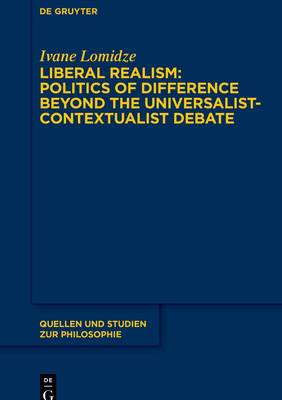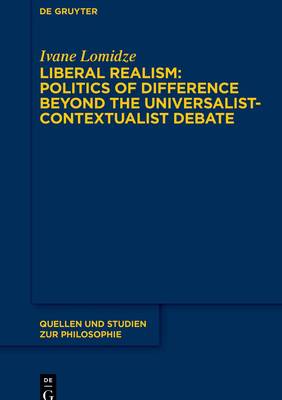
- Afhalen na 1 uur in een winkel met voorraad
- In januari gratis thuislevering in België
- Ruim aanbod met 7 miljoen producten
- Afhalen na 1 uur in een winkel met voorraad
- In januari gratis thuislevering in België
- Ruim aanbod met 7 miljoen producten
Liberal Realism: Politics of Difference Beyond the Universalist-Contextualist Debate
Ivane LomidzeOmschrijving
The central issue explored in this book is the problem of difference in democratic theory, focusing on the debates between liberalism and realism. Realist theories critique liberal models for ignoring community-specific differences and reducing plural forms of life to a homogeneous political project. This book argues that while realist models challenge the universalism of liberalism, they fail to normatively ground the adjudication of differences and cannot distinguish between legitimate and illegitimate political practices.
The core argument proposes the development of "particularist political principles" as a solution, providing an ethical framework for adjudicating difference without relying on universal norms. Drawing on moral particularism, the book demonstrates how contingent, context-dependent reasoning can resolve issues of representation and pluralism in democracy while avoiding the pitfalls of both universalism and discriminatory practices.
This research is relevant for scholars of political theory exploring new approaches to grounding pluralism and difference in contemporary democratic thought.
Specificaties
Betrokkenen
- Auteur(s):
- Uitgeverij:
Inhoud
- Aantal bladzijden:
- 163
- Taal:
- Engels
- Reeks:
- Reeksnummer:
- nr. 156
Eigenschappen
- Productcode (EAN):
- 9783111648521
- Verschijningsdatum:
- 6/05/2025
- Uitvoering:
- Hardcover
- Formaat:
- Genaaid
- Afmetingen:
- 156 mm x 234 mm
- Gewicht:
- 412 g

Alleen bij Standaard Boekhandel
Beoordelingen
We publiceren alleen reviews die voldoen aan de voorwaarden voor reviews. Bekijk onze voorwaarden voor reviews.









